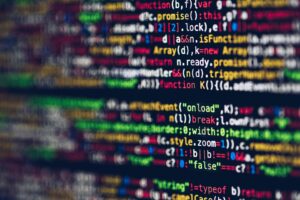Are you a budding software developer with a passion for Python? Are you eager to bring your innovative ideas to life through programming? In today's ever-evolving technology landscape, having the skills and knowledge to transform ideas into functional software is becoming increasingly valuable.
Python, being one of the most widely used programming languages, offers a versatile platform for creating dynamic applications. Once you master the fundamentals of Python, you can start exploring more advanced concepts and techniques to turn your ideas into reality.
Go for a Software Development Agency
If you're an entrepreneur or a business owner who has a brilliant software idea but lacks the technical expertise to develop it on your own, don't worry! You don't need to be a coding wizard to turn your idea into a reality. Hiring a software development agency like https://www.curotec.com/services/application-development/ can be the perfect solution for you. They specialize in developing software for various industries and can bring your ideas to life in a functional and efficient way. With their help, you can ensure that your software project is developed using modern technology and best practices, resulting in robust and reliable software that will benefit your business for years to come.
Ideate and Conceptualize
Before jumping into the development phase, take ample time to ideate and conceptualize your project. This process involves identifying the core problem you aim to solve, understanding your target audience, and mapping out the software's functionalities and user experience.
Brainstorming sessions, market research, and user personas can provide invaluable insights during this stage. Even sketching initial wireframes or drafting a high-level project plan can visualize the project's scope and flow. The ideation and conceptualization phase clarifies your vision while laying a solid foundation for the subsequent stages of software development.
Research and Planning
Now it's time to immerse yourself in research and planning: this phase is pivotal as it sets the trajectory for your entire project. Your research should include studying existing software solutions, identifying potential roadblocks and limitations, and exploring different technologies that can support your project's functionalities.
With a clear understanding of the project's scope, you can create a detailed development plan that breaks down the software into smaller components or modules. This approach facilitates better organization, efficient resource allocation, and easier tracking of progress — all keys to a successful software development process.
Learn Python Basics
As a high-level and easy-to-learn language, Python allows for rapid and efficient development. So make sure to brush up on Python's syntax, data types, control structures, functions, and object-oriented programming concepts.
Additionally, understanding essential libraries like NumPy, Pandas, and Matplotlib can help you leverage powerful tools for data analysis and visualization. The more you know about Python, the easier it will be to bring your ideas to life in software form. Of course, you can always seek help from online resources, tutorials, or Python communities if you get stuck along the way.
Advance Your Python Skills
Python is one of the most versatile and widely used programming languages of our time, and its popularity among developers continues to skyrocket. While it's relatively easy to learn the basics of Python, taking your skills to the next level requires a deeper understanding of more complex concepts like object-oriented programming and utilizing advanced libraries.
Web frameworks like Django and Flask can help you to seamlessly develop web-based applications that are both dynamic and elegant. If you're interested in data science and machine learning, Python's powerful libraries like SciPy and TensorFlow allow for complex data analysis and predictive modeling.
Design Your Application
Once you have a solid grasp of Python and its libraries, it's time to dive into designing your application. Put some thought into the user interface and user experience (UI/UX), which details how users will interact with your software.
A well-designed UI/UX can make all the difference in user satisfaction and adoption of your product. Python offers various graphical user interface (GUI) libraries like Tkinter, PyQt, and PySide that allow for intuitive and visually appealing designs. You can also explore using web technologies like HTML, CSS, and JavaScript to create a web-based interface for your software.
Start Coding
As you begin coding your application, keep best practices in mind. These guidelines have been developed over time by industry experts to ensure quality code that is efficient, maintainable, and easily understandable.
Version control systems like Git can be incredibly useful as you work on your project. Beyond tracking changes and collaborating with other developers, Git allows you to revert back to previous versions if needed.
Transforming your vision into a software solution is a rewarding yet challenging journey that requires dedication, skill, and continuous learning. By following the steps outlined in this guide, you're well on your way to making your software ideas a reality. Every great software project starts with a single line of code. Stay curious, remain patient, and keep coding. Your next innovative project could change the world.


